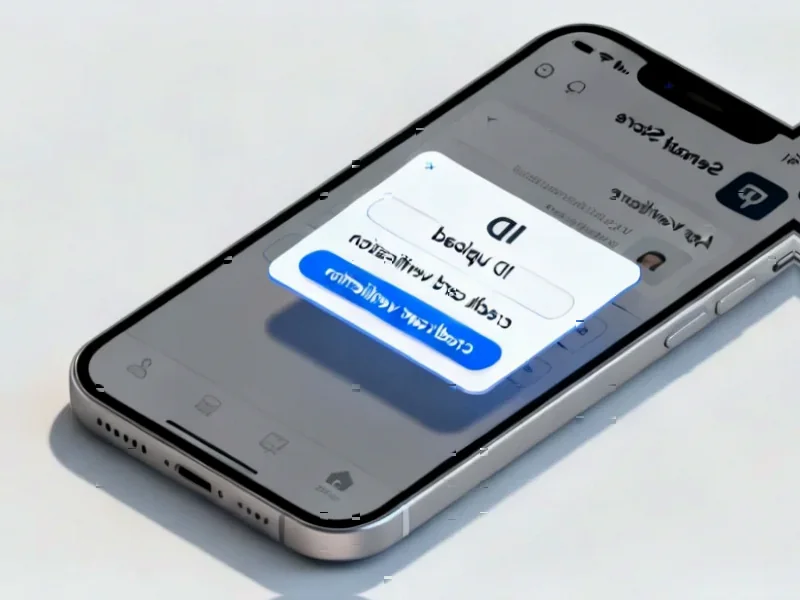According to MacRumors, Apple’s iOS 26.2 beta introduces a mandatory search engine choice screen for iPhone users in Japan, allowing selection between Bing, Google, DuckDuckGo, Yahoo Japan, and Ecosia during initial setup. This change comes ahead of Japan’s Mobile Software Competition Act guidelines that require neutral search engine selection, with the rules officially taking effect on December 18, 2025. The prompt appears after installing iOS 26.2 for the first time, marking a significant departure from Apple’s usual practice where Google remains the default search engine globally. Court documents reveal Google pays Apple approximately $20 billion annually to maintain this default position, explaining why choice screens aren’t offered elsewhere. The update also includes support for alternative app marketplaces in Japan, complying with the broader regulatory push for competition.
The $20 Billion Question
Here’s the thing – Apple isn’t doing this out of the goodness of its heart. That $20 billion Google payment is basically the entire reason we haven’t seen choice screens before. Think about it: when your entire business model depends on not giving people choices, you’re not going to volunteer to change that. But now regulators are forcing their hand, and it’s fascinating to watch.
And let’s be real – how many people outside Japan even know they can change their search engine in Safari settings? Probably not many. The option’s been buried there for years, but without that upfront prompt, Google maintains its dominance. Now Japanese users get what European users have had for a while – actual visibility into their options.
The Yahoo Japan Wildcard
This could actually get interesting in Japan specifically. While Google dominates most markets, Yahoo Japan remains hugely popular there. So when people see that choice screen, we might actually see some meaningful market share shifts. Unlike other regions where Google is the obvious default, Japanese users have a legitimate local alternative they’re already familiar with.
But here’s my question: will this actually change user behavior long-term? Or will most people just stick with whatever they know? Initial choice screens are one thing – but changing ingrained habits is another challenge entirely. The real test will be whether alternatives can prove they’re actually better, not just different.
Bigger Than Search
What’s really significant here is that this isn’t just about search engines. The same iOS update enables alternative app marketplaces in Japan too. We’re seeing a global pattern of regulators finally pushing back against walled gardens. And honestly, it’s about time.
Look, I get why companies prefer defaults – they’re incredibly profitable. But when you’re talking about essential digital tools that people use every day, maybe a little competition isn’t such a bad thing. The question now is whether other countries will follow Japan’s lead. My guess? They’re watching this rollout very, very closely.




